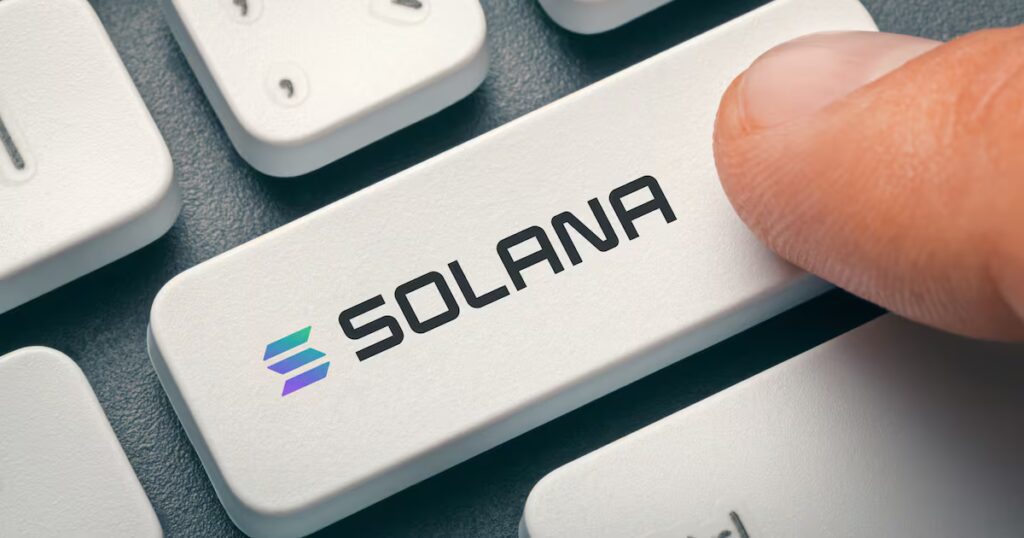- The number of validators on Solana is decreasing.
- Supporters argue that the network is stronger without those who left.
- The total number of validators may not be the most important factor.
Solana shrinks.
The number of validators, entities that manage the distributed blockchain network, has fallen from a peak of around 2,500 in early 2023 to fewer than 900 today, a decline of 64%.
However, according to some of Solana’s most ardent supporters, this sharp drop is not a problem.
It may even be a good thing.
“These validators were using underperforming hardware, which prevented them from keeping up with Solana’s growth,” said Tomas Eminger, director of infrastructure at RockawayX, an investor in the Solana ecosystem. DL News.
“We’re actually happy to see the network thriving without these validators, which were just a bottleneck,” Eminger said.
Most blockchains pride themselves on having more validators because it helps increase their security, resilience, and censorship resistance.
But supporting a large number of validators can be difficult. Those who manage vital infrastructure do not do it for free. They must be incentivized – usually through rewards in the form of valuable tokens – to continue executing and processing transactions.
If costs exceed rewards, validators start to go out of business.
Subsidies drying up
One reason for the decline in validators is that the Solana Foundation, a nonprofit that supports development on the blockchain, has reduced the amount of SOL tokens it lends to validators, said Max Kaplan, chief technology officer of SOL Strategies, a Solana treasury company. DL News.
To stay in sync with the rest of the network, Solana validators must submit thousands of transactions daily, which they must pay for out of pocket. If a validator does not stake enough SOL tokens to generate a staking return greater than the cost of those transactions, it is not economically viable to operate.
To address this issue, the Solana Foundation runs a program that lends lump sums of SOL tokens to validators to help them earn enough rewards to offset these transaction costs.
In April, the foundation began removing three validators from its delegation program for every new validator onboarded, in an effort to reduce the number of validators relying on it.
At the time, many Solana supporters welcomed the move because it promised to make the network more decentralized by reducing the influence of the Solana Foundation.
Malicious validators
It’s not just the unprofitable validators who are leaving.
“Most of the validators that left were either low quality or malicious, so the overall reliability of the network improved despite a smaller set,” said Dillon Liang, co-founder of Blueprint Finance, the developer behind the Solana DeFi Glow Finance protocol. DL News.
“This is largely because stake pools have handled malicious sandwichers more proactively,” Kaplan said.
Kaplan and Liang are referring to validators that enable sandwich attacks – front-end trades conducted by trading bots that profit at the expense of other traders. They argue that removing these validators is beneficial to the network because it reduces the likelihood of exploitation by users.
Sandwich attacks are a recurring problem on Solana. Users have already paid millions of dollars in additional transaction fees to prevent sandwich attack bots from targeting their transactions.
Concentration risk
Others argue that the total number of validators is not the most important factor.
“What’s really important is the geographic distribution of the nodes around the planet,” Eminger said.
When blockchain validators are distributed across different parts of the world, it helps protect the network from localized problems.
Analysts have warned that a high concentration of validators running on cloud providers such as Amazon Web Services servers poses a significant risk. If a server location or provider experiences an outage or technical difficulties, it could have serious consequences for a blockchain with many of its validators hosted there.
The drop in the number of Solana validators, however, does not seem to have any impact on the geographical distribution of the network.
Just over 30% of validators are located in the United States. The network is spread across dozens of web hosting providers, with the largest accounting for just over 18% of validators, according to Rated, a blockchain validation data provider.
Solana’s upcoming Alpenglow upgrade will also reduce validator operating costs, potentially helping new ones join the network and increasing diversity.
Again, the number of validators just isn’t a big deal.
“The focus should instead be on improving the quality of active validators rather than just focusing on quantity,” Kaplan said. “I don’t think there is an investor who would value Solana much more if they had 1,000 validators out of 500.”
“500 is an order of magnitude better than one, which is the traditional finance world.”
Tim Craig is DL News’ DeFi correspondent based in Edinburgh. Contact him with advice at tim@dlnews.com.




